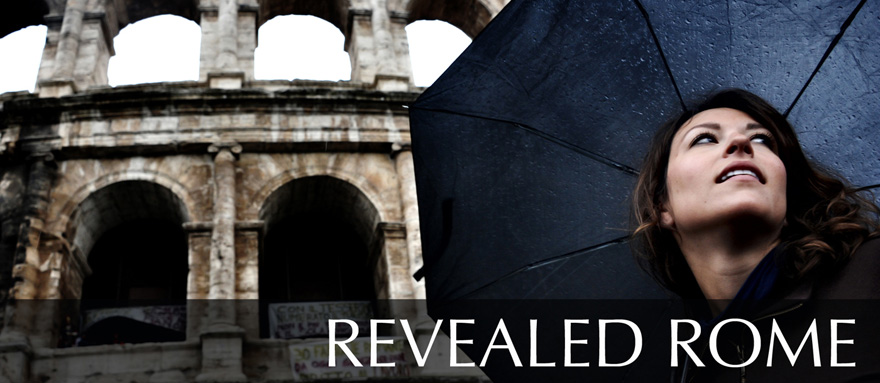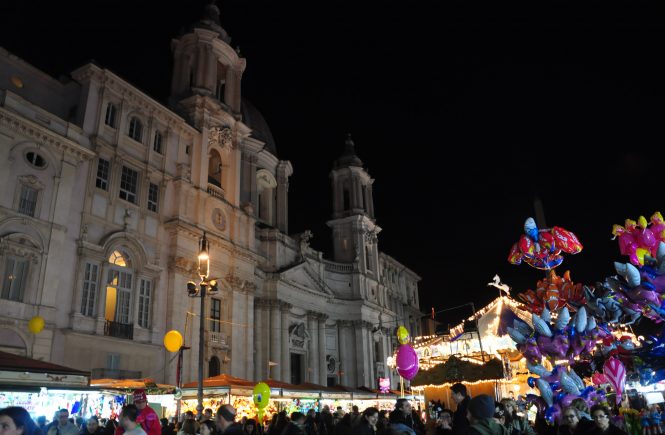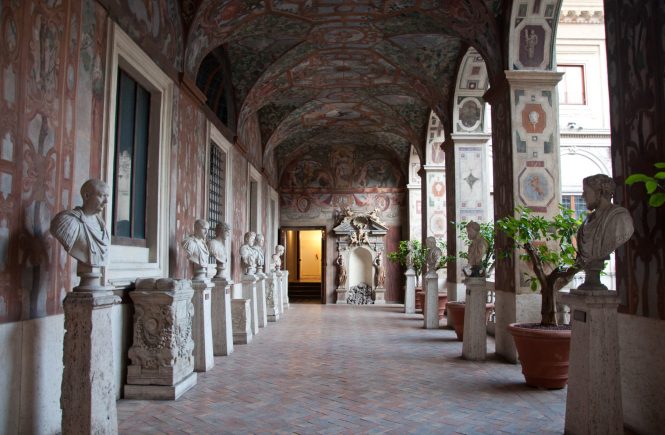People often have the impression that life in Rome is all about la dolce vita. By focusing just on food and travel, art and history, my blog, and others like it, encourage that idea.
But after four years of speaking to starry-eyed strangers about life in Italy, it’s time to come clean.
Living here can be over-the-top wonderful. There’s no arguing that it has some serious advantages over almost anywhere else. (The history! The food! The language!). Because I happen to adore those particular aspects of life, I’ve been the happiest here that I’ve ever been.
But as my friend Katie Parla pointed out in a recent blog post on Italy’s many problems, there’s way more to the country than fantastic wine and friendly people… not all of it good.
So before you think about ditching your job, your life, and your friends for Rome—or before you daydream about it any more—here are some things you need to know.
La dolce vita was never for real.
No, really. The phrase became popular only because of Fellini’s 1960 film, and the title was meant to be ironic. I mean, have you seen the movie? It’s about bored intellectuals and celebrities in Rome, desperately looking for any connection to give them meaning. (Even if it means jumping into an icy-cold Trevi Fountain in an expensive dress!). It’s depressing. Seriously.
But, somehow, people started taking the phrase at its surface, thinking it implied Rome life is nothing but sweet. In fact, even the lit-up sign on the Via Veneto, where so many of the film’s scenes take place, is, I’m pretty sure, not supposed to be ironic. Which is kind of strange.
In Rome, Italians don’t really revel in “la dolce far niente” (the sweetness of doing nothing).

How could they? They’re working two jobs and trying to pay their rent and feed their families in the midst of a crushing economic crisis. You try doing that and still making time for three hours in the middle of the day to people-watch over a bel caffè. (Go to any cafe in the center of Rome, and I promise you: It’s a three-to-one chance that anyone drinking coffee while sitting at a table, which also costs more than drinking it at the counter, is a tourist).
Sure, lingering happens. It just happens on the same timetable that it does back in the States: after work, over dinner or drink.
Also worth noting is that Italian friends of mine work just as hard, and for hours that are just as late, as my friends in New York. The only difference is that they’re paid half the amount of their American counterparts. (Well, that—and they get four to six weeks of vacation).
Yes, Rome’s centro storico is beautiful and romantic. But most Romans don’t live there.
I’m centro-centric. I’ve lived here from day one. But that makes me an anomaly, at least among Italians.
Rome is a city of some 3-4 million people, and believe me, most of them aren’t squeezed into the relatively tiny area encircled by the Aurelian walls. Want to see where most people live? Take the train out to Nomentana or Monte Sacro or Tiburtina. No, these aren’t “bad areas,” but they sure look a heck of a lot different than the cobblestoned-street, pastel-palazzo fantasy that those of us who only ever see the centro storico get to imagine.
In fact, they look like… any other not-particularly-well-cared-for city in southern Europe.
The parts of Rome that make the city so special—its art, its ruins, its artisans—are being destroyed.

Every year, there’s a week, la Settimana della Cultura, where major museums and sights are free and open to the public. The government just announced it was being cancelled for 2013. Sure, it’s the economy—but it’s also an ominous sign of what Italy is prioritizing.
As I wrote in a piece on Italy’s cultural heritage back in 2010, Italy has more World Heritage sites than any other country in the world. But as a percentage of GDP, Italy spends one-third of the amount on its sights as, say, France. And funding is only getting cut more and more. The result? Ruins are crumbling, literally, as much-needed restorations are kicked further down the road.
And that’s not even mentioning the corruption that’s sucked even more resources out of these sights, most recently in Pompeii.
Then, of course, there’s the issue of all of the small shops and businesses being pushed—or priced—out. Once full of independent shops and artisans, Via del Corso and the surrounding streets are now chock-a-block with chain stores.
As well as sad, all of these are insane things for a financially-focused Italy to allow to happen. Tourism contributes one-third of Italy’s GNP (!). And, um, I don’t think tourists are coming here to see the freakin’ GAP.
Rome really isn’t very cosmopolitan.
And that’s okay! But it surprises some people.
On good days, I think Rome has the best of both worlds: the charm and familiarity of a small town with the variety and energy of a big city. On bad days, I think Rome has the nosy neighbors and ridiculous inconveniences of a small town, with the traffic, pollution, and chaos of a big city.
Regardless, one thing’s for sure: While it’s getting the fast-food restaurants and chain stores that you’d expect in a big city, the other, better things you’d expect a big city to have just haven’t quite made it here yet. Good ethnic restaurants, for example. (There are hardly any). Food delivery. International film houses (there are a couple, but one just closed recently). Even chic, trendy stores and boutiques are relatively few and far between, although that really seems to have been changing lately. So maybe Rome’s getting there… but it’s still piano, piano.
The jobs situation is not good, for Italians or expats.
It’s kind of heartbreaking to hear young Italians talk about their employment options. Even though some have managed to find their niches, or even start businesses, here (which is about 1,236,434,124 times harder to do in Italy than in the States), most want nothing more than to go abroad and get a job in Australia, America or the U.K.
It’s not much better for expats. I’ve made it work for myself because, well, I’m incredibly lucky to have the passions that I do, even if it means I sometimes struggle to feed myself will never be the next Donald Trump. Obviously, a writer can write from anywhere. But writing about history and art and food and culture is something that’s especially rewarding, and even (shockingly) sensible, to do from Italy.
I also freelance—so I don’t have to deal with trying to get hired by an Italian company. Which would be near-impossible. It’s a huge pain for them to sort out and pay for your contract and visa, so they want you to be 1) already legal here and 2) fluent in Italian. Not to mention, there needs to be something about you that makes you a better hire than their nephew, or neighbor’s kid or, really, any other born-and-bred Italian.
What that means for expats is that, in Rome, if you’re not making writing, or some other creative field, work for you, then you’re probably working at the U.N. (the Food and Agricultural Organization and World Food Program are both based here). Or you’re teaching English or selling your soul “gathering” tourists into tours at the Colosseum or Vatican.
Like I said, not a lot of options.
If you’re even slightly aware of what’s going on around you, it’s hard to not get kind of disgusted.
Katie’s post is great at breaking a lot of it down, but to highlight, we’re talking about things like how organized crime accounts for some €160 billion a year or that monkey and misogynist corrupt media mogul Berlusconi not only ran the country for years, but seems poised to be able to do so again. (Seriously?!?!).
No, these things don’t have to take away from how great your amatriciana tastes, or how gorgeous Rome looks from the top of the Janiculum hill.
But you can’t know or understand Italy—and you certainly can’t proclaim to love it—unless you’re at least aware that these things are going on.
Uh, so what are you saying? Don’t even come to Italy?
No! No! That’s not what I’m saying at all. Even if you think you’d hate trying to set up a life here, it’s worth visiting at least once in your life. There’s really no place like Rome.
And let me be clear: As much as it might not sound like it from this post, I love living here. That’s because I’ve learned (or tried) to focus on the wonderful things about Rome. The fact that I walk past the Colosseum and forum every day. The generally-lovely weather. The incredible art. The fact that waiters and shop owners actually bother to learn my name. The beauty of the centro. The proximity to both beaches and mountains. The fact that, while things are changing for the worse, I can still get a handmade shirt for €30 or a bottle of organic extra-virgin olive oil for €8.
Plus, of course, as many problems as Italy has, it’s not as if other places are necessarily much better off. In the three weeks I was back in the States over the holidays, my very-talented best friend—another journalist—was in the throes of being laid off, while other friends were working such long hours, we even didn’t get to meet up. And while photos like these of trash around Rome are gross, I swear I saw just as many overflowing dumpsters in downtown Manhattan.
None of which compared to a horrific reminder of the U.S.’s major issues with violence and gun control when a murderer massacred 20 little kids in the tiny town right next door to mine.
So. The takeaway? I love my life in Rome. But I hustled to make it happen. And to make it work here, that’s what anyone has to do.
Capito? Okay!
A final note:
Obviously, this post is about Rome. Many of these stereotypes do play out more in other parts of the country. Go to the small towns in Umbria and Tuscany—or better yet, the south (or Sicily!)—and you’ll see lots of what looks like la dolce far niente, like old people sitting and playing cards for hours on end, Italians of all generations enjoying a lazy passeggiata through the piazza at night, and extended families surrounding the dinner table for a home-cooked meal. But, of course, there are even fewer jobs, youths are leaving en masse to find work in the cities, and the inconveniences, like nothing being open between noon and 4pm, are even more extreme.
You win some, you lose some.







3 comments
Ciao Amanda. Great posting, well said! We live in a bubble of sorts, with American jobs, so we have the best of all possible circumstances. Like you, I see (mostly) the good: generous people, beautiful weather, history, art, and OMG the food! And we residents don’t have time to sip coffee all day either, not that my espresso shot would last long enough to read a paragraph in a book. Life goes on with exercising, studying Italian, food shopping and other errands, as anywhere in the world. I do enjoy approaching the challenges from healthcare to haircuts, and it is terrifically interesting to experience the cultural differences. (Loved your piece on massage for “The American!”) The Italian perspective on so many things has broken down my “American way” view and caused me to consider different approaches, some good, some strange.
The things I love most about Italy are indeed an integral part of the culture. The things I dislike the most are too: People who monopolize the sidewalk, the almost complete disregard for pedestrians, careless smoking, people who charge the bus doors to get on before you can get off. But the same person who will fight you to get on the bus, will go 10 minutes out of their way to show you how to find an obscure address.
Truly there is no nirvana; Not here and not in the U.S. You portrayed a balanced perspective.